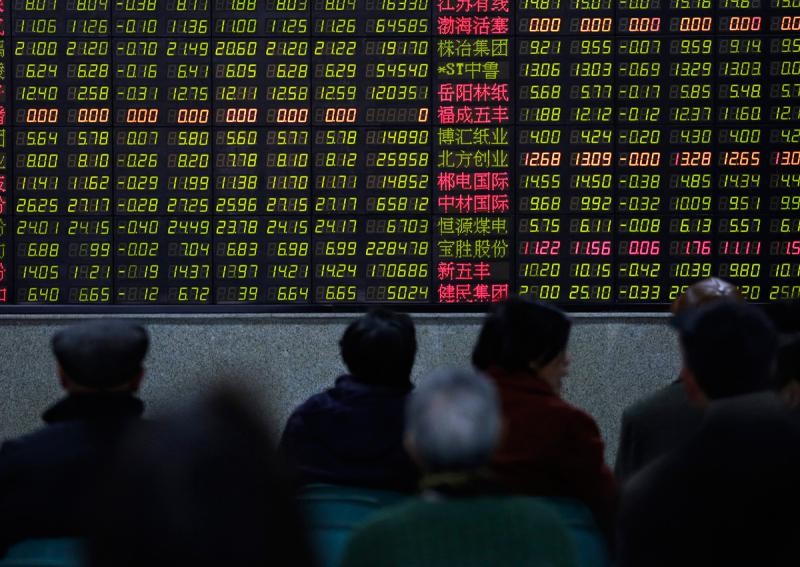Soaring Tokyo leads Asia rebound, Shanghai down on return

Japanese investors shrugged off an economic contraction to propel stocks more than seven per cent Monday, leading an Asia recovery after last week's horror show, but another weak trade report reinforced fears over China's outlook.
Analysts said the latest round of dismal results will turn the focus on central banks to step up to the plate as the global economy is buffeted and markets suffer their worst start to a year in recent memory.
The broad gains across the region came after a surge in New York and Europe on Friday fuelled by a rally in oil prices and bargain-buying. Upbeat readings on German growth and US retail sales also provided some support.
However, experts said the gains were unlikely to be sustained for a long period, with the concerns that have wiped trillions off markets already this year - including the weak global economy and China's slowdown - still unresolved.
"Shares have become oversold again and due for at least a bounce which may now be getting under way," Shane Oliver, head of investment strategy in Sydney at AMP Capital Investors, told Bloomberg News.
"But with global growth worries remaining, it's still premature to say that shares have bottomed." Tokyo soared 6.7 per cent in the afternoon after losses of more than 11 per cent last week that were fuelled by a surging yen as dealers fled into safe-haven investments.
News that the economy shrank in the final quarter of last year - while dealing another blow to Prime Minister Shinzo Abe's attempts to kickstart growth - fanned calls for the central bank to further ease monetary policy.
"Japanese policy makers need to go on an all out war against the risk of a recession," Takuji Okubo, the Tokyo-based principal and chief economist at Japan Macro Advisors, told Bloomberg TV.
The Bank of Japan "should keep on easing monetary policy. Policy makers need to show the market they are aware of the risks and they are doing everything they can to prevent a recession." Speculation about possible further easing - effectively printing cash - pressured the yen after it soared about four per cent against the dollar last week.
In the afternoon the greenback was at 113.97 yen compared with 113.25 yen in New York Friday.
Hong Kong was up 2.8 per cent by lunch, with HSBC up more than three per cent after saying it would remain headquartered in Britain, rejecting a move to Hong Kong, despite concerns about increased regulation in the UK and a possible split from the EU.
Sydney gained 1.4 per cent and Seoul 1.3 per cent. Singapore piled on 2.5 per cent.
Shanghai was 1.6 per cent off by lunch. However, the losses were limited considering traders were playing catch-up with last week's bloodbath across world markets and after data showed exports tumbled 6.6 per cent year-on-year and imports plunged 14.4 per cent.
The news will fan hopes the People's Bank of China will step in to provide relief, having slashed interest rates six times in the 12 months to November and also lowering the amount of cash lenders must keep in reserve.
"Weak exports pose a further downside risk to the weak economy, suggesting the government may need to step in more quickly with policy support," Fielding Chen, an economist at Bloomberg Intelligence in Hong Kong, wrote in a report Monday.
"In particular, policy makers may want to ramp up fiscal stimulus as soon as possible in order to bolster investment and consumption." The PBoC went on the offensive at the weekend, with an interview in the Caixin magazine in which governor Zhou Xiaochuan said there was no basis for continued yuan weakening.
A plunge in the currency was among factors behind the tumult on global markets this year and last as traders fretted over the state of the Chinese economy, the world's number two and key driver of global growth.
Zhou said the country's balance of payments was good, capital outflows were normal and the exchange rate is basically stable against a basket of currencies.
He vowed China would use its massive foreign exchange holdings to defend the yuan and pledged currency reforms would continue.